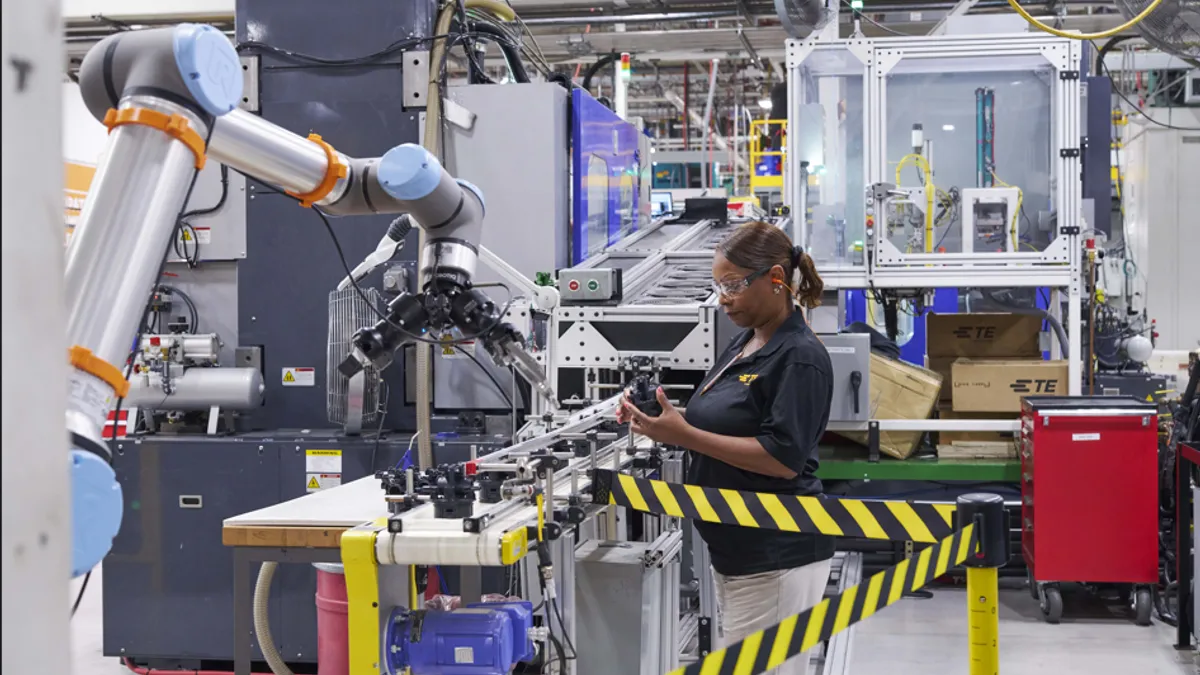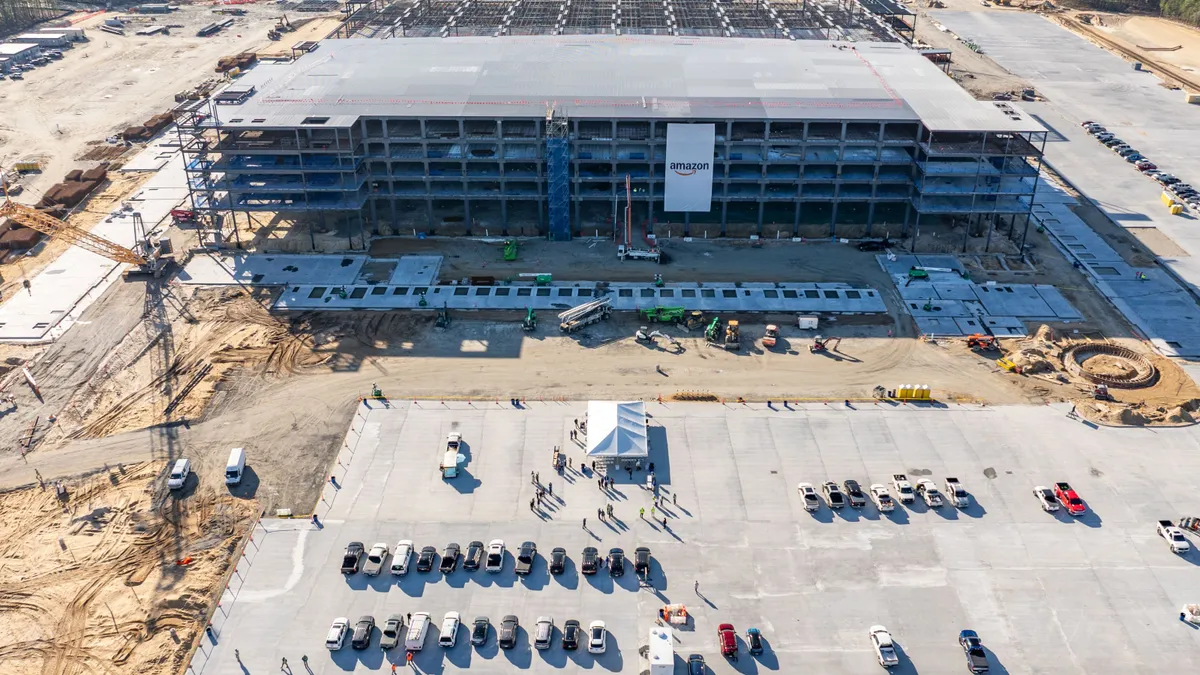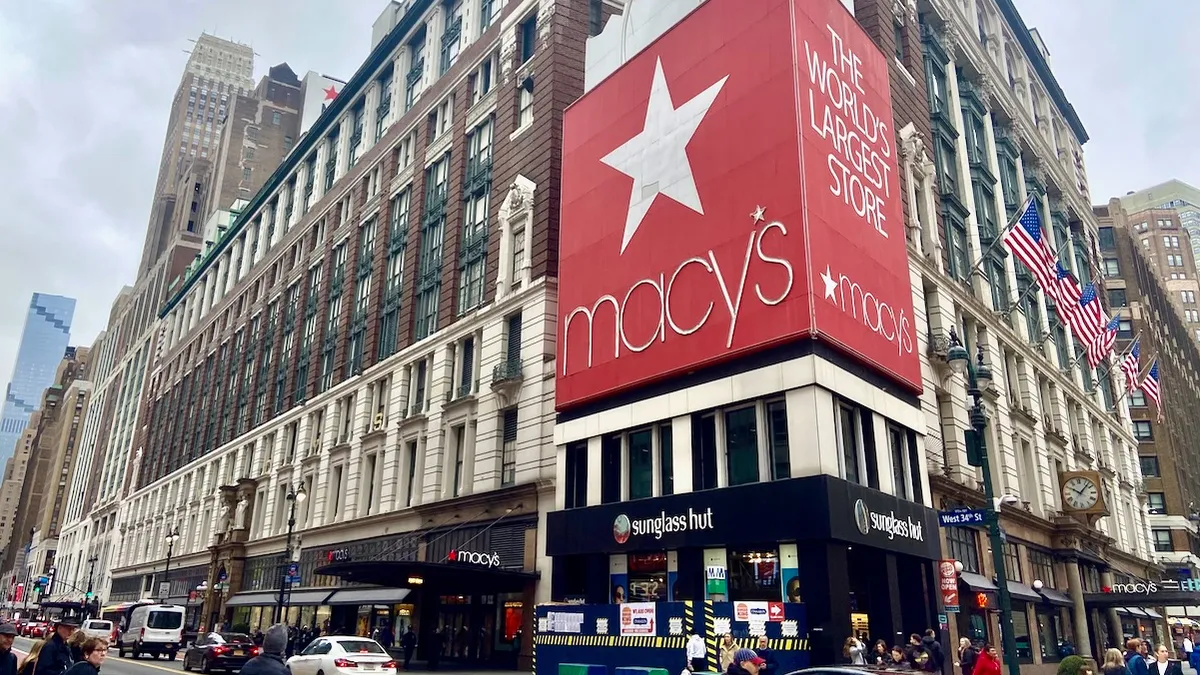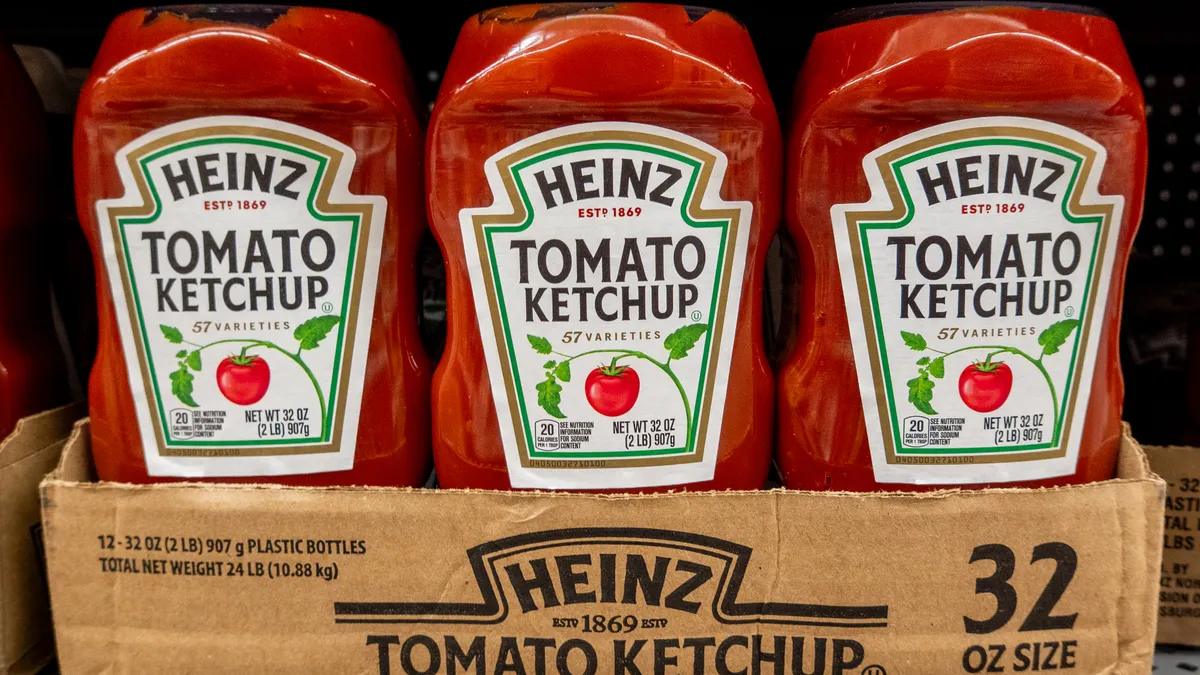Supply chains are constantly changing as new rules, technologies, resources and market trends transform operations. Here's a skim of the week's indexes, technology announcements, expansions and M&As from around the web
In Case You Missed It
- The railroad industry is roaring with optimism after Hunter Harrison's first quarter as CSX CEO.
- Why waste spoiled food when you can use it to power your distribution center, as this grocer did?
- Retail bankruptcies are leaving suppliers with an unenviable dilemma: toughen terms, or fall with the ship?
Market Snapshot
Talks of NAFTA's future may have dominated headlines this week, but the Department of Transportation reminded us there's no time like the present when it released its monthly U.S.-NAFTA Freight Value statistics this week, showing $86.5 billion worth of goods were traded between the U.S. and its neighbors last month.
In fact, even as presidential rhetoric frequently threatened the agreement, trade as calculated by value has largely been on the upswing since November after at least 20 months of year-over-year recessions (with one exception in August, 2016).
However, the statistics show just how tied U.S. trade and the logistics economy are to commodity prices.

Although 63% of all trade is moved by truck between the three partners, the mode suffered a 3.6% decrease in transport, year-over-year. The reason, according to the Bureau of Transportation Statistics, is that "computer related machinery and parts was down in value by 10.7%" from last year. Similarly, as the price of crude oil and minerals rose from last year, the value of pipeline and vessel transport also grew dramatically (65.2% and 36.9%, respectively), leading to the overall growth.
A note of caution: Shifts in volume typically lag behind shifts in value, depending on a product's elasticity.
Perhaps fortunately for NAFTA trade and the logistic sector that handles it, crude oil is a largely inelastic product, as are computer components, so it seems unlikely volumes will fall drastically due to price unless consumer spending reverses its current upward trend.
Yet, signs of tepid spending and a weakening economy continue to pop up in the U.S. Most recently, The Wall Street Journal reported purchases of consumer packaged goods fell 2.5% in the last quarter, and that some economists are forecasting a GDP growth of just 1% last quarter.
Similarly, the BTS' NAFTA report notes the value of auto machinery and parts fell last month, potentially due to an inventory glut downstream. And while the World Trade Organization pegged trade growth at 2.4% in 2017, it warned the trend could easily reverse if threats of import restrictions worldwide materialized.
Long-term trends continue to appear positive for the U.S. economy, but this week's reports remind us economies are fickle and affected by a large combination of factors. Optimism is great, but must be measured.
Technically Speaking
Various major software providers announced increased capabilities and solutions for the logistics space last week.
Perhaps the most groundbreaking, however, was an announcement by Maersk Line, stating it would use Microsoft's Azure platform for a swathe of its digital innovations, including global tracking solutions. JOC.com reports the partnership seeks to enable Maersk clients to gain visibility as containers move on vessels and through customs processes, while also alerting them of disruptions.
As Maersk turns to digitization, however, others are turning away from once-hailed solutions such as online freight marketplaces.
Haven, which piloted a freight marketplace in 2015, will now launch a TMS for the same purpose: to simplify the process of booking, documenting and managing cargo shipments. JOC.com additionally reports the executives made the choice due to a realization price transparency wasn't the true problem in the industry as much as clearing and executing shipments.
Meanwhile, some big news came out JDA's user conference this week — including a FourKites integration to provide clients with real-time visibility, a "one-stop consumer insights and execution solution" for retailers, and an emphasis on industry-collaboration with a "partner advantage" program.
In other news, corporate giants continue to study next-generation technology: IBM recently patented a drone package-transfer technology to have swarms of flying couriers communicate independently; and EY announced a set of applications (EY Ops Chain) to help clients commercialize blockchain technology.
Breaking Ground
Industrial real estate absorption continues to soar as companies take advantage of a better economy to invest in new capacity, evidenced both by recent reports and a stream of local news items boasting new facilities' impact on regional jobs.
Cushman & Wakefield this week reported U.S. industrial markets absorbed 53.8 million square feet of space last quarter, forcing vacancy rates down to 5.3%, well below the 10-year historical average of 8.3%, according to DC Velocity. As a result, real estate rents are going up, particularly in inland distribution hubs, where the growth of e-commerce alongside a boost in global trade is driving new construction.
The major markets are Atlanta, California's Inland Empire, Dallas-Fort Worth, Cincinnati, OH and Chicago; but the trend is general.
Amazon, for example, announced it would open three more fulfillment centers in New Jersey. Meanwhile, San Antonio, TX, will get a TJX Companies distribution center to service the various T.J.Maxx and Marshalls stores in the region; Fashion apparel distributor Quiet Logistics is setting up shop in the St. Louis Area; DHL Supply Chain is opening a new landscape distribution center for SiteOne Landscape Supply in Fairburn, GA.
Besides distribution centers, even Detroit will get a new factory from auto parts maker Flex-N-Gate for the largest such investment in 20 years, Reuters reports.
In other news, the Port of Palm Beach Commission approved a $4M cargo storage area expansion; Pennsylvania approved $40M in state funding for various infrastructure projects; and Norfolk Southern announced a new double-stack rail route in the Pittsburgh, PA area.
Mergers & Analysis
It was a quiet week in terms of business deals, except for two big-ticket items from foreign logistics providers.
The boards responsible for Maersk Line and Hamburg Sud approved the latter's acquisition for the initially agreed-upon price of $4.03 billion, to be financed by a syndicated loan facility, Splash 24/7 reports. The announcement is another step of a long closing process expected to culminate by the end of this year.
Meanwhile, JD.com will create a logistics group (JD Logistics) to handle the second-largest Chinese e-commerce company's logistics needs and networks. Although Alibaba, the largest Chinese e-commerce company, has openly said it is not interested in running a vertical supply chain, TechCrunch reports JD.com seeks to invest heavily in logistics automation in order to cover the full order, delivery and after-sales process.
In somewhat similar news, Crowley Logistics announced it would partner with 3Gtms to use the latter's TMS technology for its inland clients; Brazilian supply chain company Modern Logistics received certification to operate its own air cargo fleet; and Netherlands-based logistics provider Samskip Logistics acquired New Jersey-based fresh foods forwarder Rimar Consultants to continue its geographic and service expansion.






















